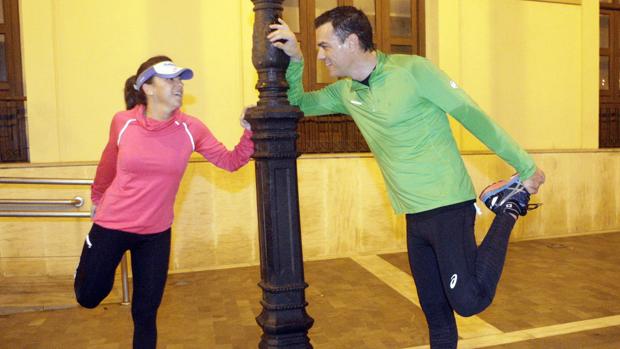Hillary Clinton attended Donald Trump’s wedding; Alfredo Pérez Rubalcaba once ran the 100 metres in under 11 seconds; most Muppets are left-handed; the northern leopard frog swallows its prey using its eyes.
And Pedro Sánchez could win the upcoming primary of the Spanish Socialist Party (PSOE).
It shouldn’t seem that outlandish. After all, he’s done it before. In 2014, the young economist came out of nowhere, gaining the support of Susana Díaz, the regional premier of Andalusia, and other powerful figures in the party, to score a surprise win.
But given the manner of his exit just five months ago, it does seem strange to think that Sánchez could be back in charge again by the summer.
His leadership ended last October in great part due to his insistence on refusing to help Mariano Rajoy’s conservatives form a new government, after months of post-electoral paralysis had created a damaging division in the PSOE. After an embarrassing, brutal and at times just plain weird weekend of self-mutilation, much of it seemingly orchestrated by a now-hostile Díaz and other senior figures, the party ditched Sánchez and installed a caretaker leadership, led by Asturian veteran Javier Fernández.
Five months on, the caretaker is still there. And so is Sánchez.
Against the wishes of the party machinery, he will compete in May’s leadership primary, against Díaz and former Basque premier, Patxi López. Relieved of the burden of being leader, Sánchez has been a liberated figure in recent months. Leather-jacketed and skinny-jeaned, he’s been driving round the country staging pro-Pedro rallies, none of them huge, but most of them passionate, at which he and his grass roots supporters can vent their anger at the state of Spain and, by proxy, the state of the PSOE.
It’s an appealing role: the groovy supply teacher who parachutes in, lets the class have fun and offers relief from the square old jobsworths.
Last week he was at it again, jogging through the streets of Melilla at dawn with local party members, cheerily tweeting: “Few things make you feel as good and recharged as running in the morning.” And he even gatecrashed Díaz’s back yard, Cádiz, at the weekend, squeezing in a fist-raised rendition of ‘The Internationale’
If all Spanish Socialist voters were to decide the next leader, Sánchez would seem to have it in the bag: a recent El Mundo poll gave him a 12-point lead over López and a 25-point lead over Díaz, who tends to generate a particularly passionate opposition among the party faithful outside her native Andalusia.
However, it is not those voters but the 180,000 party members who will decide, making the race highly uncertain, especially as nearly a quarter of them are Andalusian.
There are other obstacles to Sánchez’s route to re-taking the reins of the party. Perhaps the most obvious is that he has been there before and most of his two-and-a-bit-year tenure as leader was utterly unspectacular – until the compulsively watchable endgame, that is. He did initially bring a degree of freshness to the job, but it was rooted more in his youth (he’s now 45), tennis-coach looks and lack of baggage, rather than any genuinely new ideas.
Two record-breakingly poor general election performances helped seal his fate, although both were in difficult circumstances, given how Podemos and Ciudadanos had reshaped the political landscape.
By the end, Sánchez did make a lunge to the left, hoping that a governing alliance of some kind with Podemos, and possibly Catalan or Basque nationalists, would keep Rajoy out of power. But too many powerful voices (Felipe González, Díaz, El País newspaper) made that impossible. He like, the rest of the PSOE, was wrong-footed by the arrival of Podemos to the left, a variation on the populist challenge facing social democratic parties across Europe.
Now, Sánchez is suggesting he has learned from his mistakes and he is preaching a less inhibited form of Spanish Socialism, under the slogan “Yes means yes”, (a cunning inversion of the “No means no” he previously employed against Rajoy’s investiture). Reaching out to Podemos seems to be near the top of his list of priorities.
It’s easy to question, or ridicule, this new-found radicalism, and paint Sánchez as a poor man’s Pablo Iglesias, a low-cost Corbyn. But the new, unfettered Sánchez – Pedro 2.0 if you like – could well soon find himself back in command at party headquarters in Madrid.
He’s been called many things over the last few months. A zombie who doesn’t know he’s dead; an “unscrupulous fool” (El País); or even a pseudo-Sandinista. But nobody would dare describe Pedro Sánchez as unambitious.

0 Comments